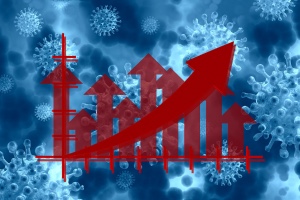
Geneva: The World Health Organization (WHO) today warned that the overall risk related to Omicron is considered “very high for a number of reasons”
The reasons it cited are as follows:
- The global risk of COVID‐19 remains very high overall
- There is concerning preliminary evidence on Omicron suggesting, in contrast to previous VOCs, both potential immune escape and higher transmissibility that could lead to further surges with severe consequences. “The evidence for this assessment contains considerable uncertainty and will be updated as more information becomes available.”
WHO Director-General Dr. Tedros Adhanom Ghebreyesus told a special session of the World Health Assembly today that it is not yet known whether Omicron is associated with more transmission, more severe disease, more risk of reinfections, or more risk of evading vaccines, and scientists at WHO and around the world are “working urgently to answer these questions”.
WHO recommended priority actions to WHO Member States to enhance readiness and prepare response to Omicron variant. These include the following:
- Ensure early warning systems are in place
- Ensure mitigation plans are in place to maintain essential health services and necessary health care resources are in place to respond to potential surges
- Regularly communicate evidence-based information on Omicron and other circulating variants
Already European countries have disallowed travellers from southern Africa while Israel, Japan, Morocco and South Korea have stopped foreign travel.
Dr. Ghebreyesus told the World Health Assembly today that world remains in the grip of the pandemic as it enters the third year of the “most acute health crisis in a century”.
He said the emergence of the highly-mutated Omicron variant underlines just how perilous and precarious our situation is.
“South Africa and Botswana should be thanked for detecting, sequencing and reporting this variant, not penalized,” he said and called for a new accord on pandemics since the current system “disincentivizes countries from alerting others to threats that will inevitably land on their shores”.
Dr. Ghebreyesus reiterated the need for an equitable distribution of COVID-19 vaccines, and pointed out again that more than 80% of the world’s vaccines have gone to G20 countries while low-income countries, most of them in Africa, have received just 0.6% of all vaccines.
“We shouldn’t need another wake-up call; we should all be wide awake to the threat of this virus. But Omicron’s very emergence is another reminder that although many of us might think we are done with COVID-19, it is not done with us.”
– global bihari bureau





